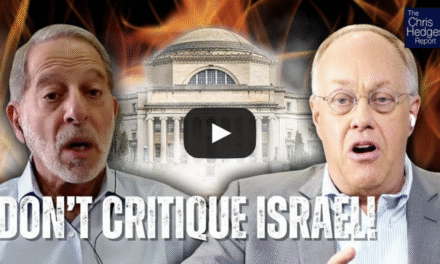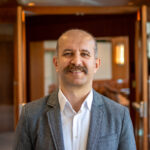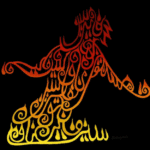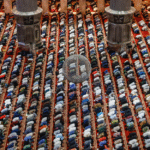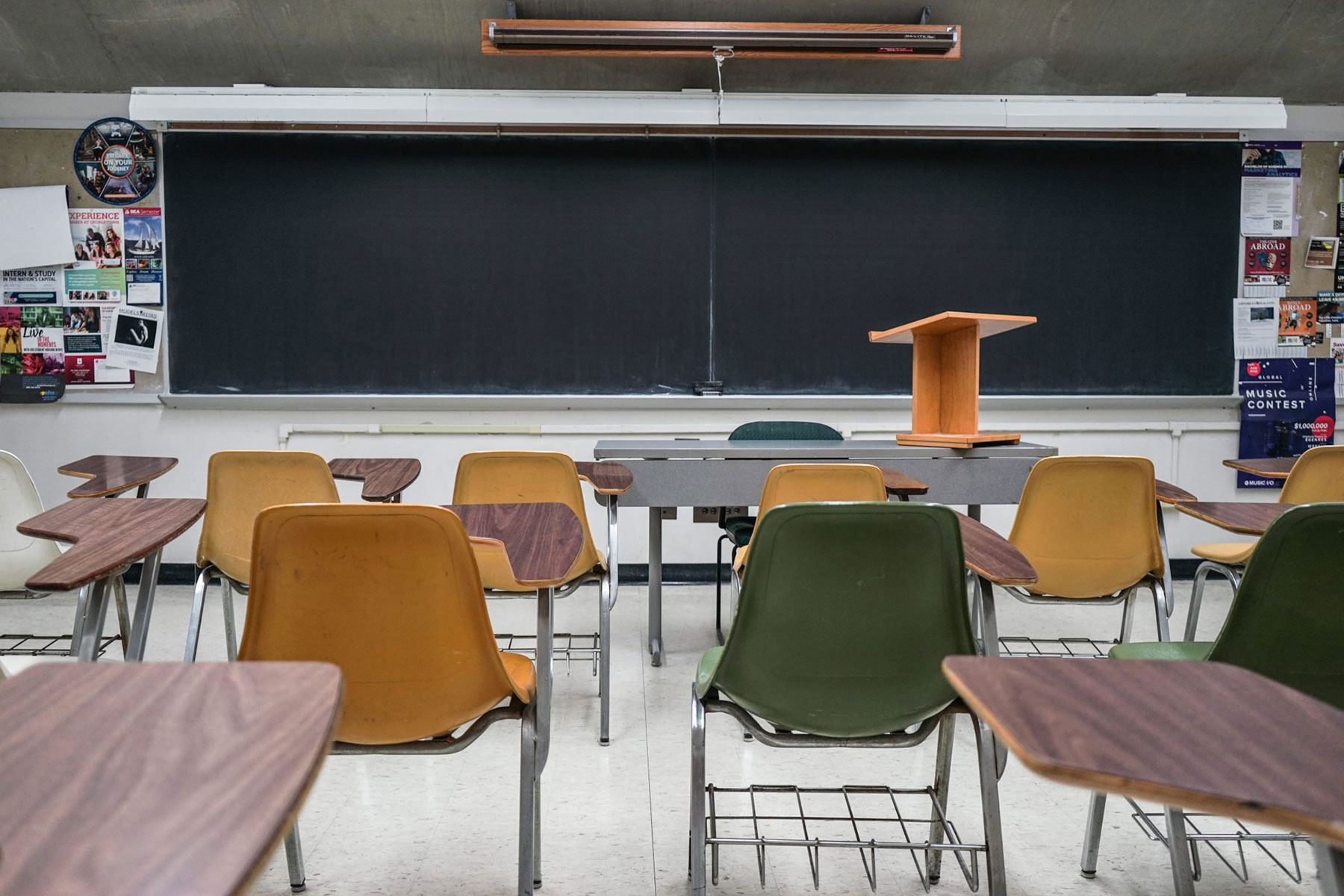
Originally Published By:
Originally published by Parker Schorr as Terrorism class syllabus prompts critiques of bias, racism in UW political science department on The Badger Herald
UW student Ali Khan’s critique of class on Facebook quickly tallied hundreds of likes, comments, and shares.
A University of Wisconsin student’s Facebook post criticizing a political science class on terrorism Wednesday prompted outcry from hundreds of other students who believed the class promoted a racist and narrowly-defined conception of terrorism.
Ali Khan, the student in the class who posted a photo and critique of the syllabus on Facebook, quickly tallied over 300 likes and dozens of comments and shares from students both from UW and from other institutions across the U.S.
The class — Political Science 347: Terrorism, taught by professor Andrew Kydd — contains five “modules,” two of which took the brunt of critiques.
Read the FB Post by Ali Khan
I just came out of this Terrorism class
And I am livid.
The course material fails to provide any context:
1. You cannot define terrorism singularly by the actions of terrorist groups or non-state actors without including state-sponsored terrorism. To understand terrorism, you need to understand the circumstances that fueled it. Sure, we can discuss the Taliban’s opposing views on the American government, but not without discussing that same American government’s cooperation and anti-Soviet training with the Mujahideen.
2. There’s a whole module titled “Jihad.” This legitimizes a perception that the concept of Jihad is one-dimensional, single-faceted, and inherently violent and connected to terrorism. Will we be discussing the different types of jihad (by the heart, tongue, and hand)? Is the professor an Islamic scholar who can accurately speak about jihad?
3. At the end of class, someone behind me asked a question about how to categorize the state-sponsored terrorism against the Rohingya refugees. The professor was like oh yeah I would categorize the “Rohingya ‘rebels’ as either guerrillas or terrorists.” The student was asking about the oppressive Burmese government, not the Rohingya victims.
For all those who ally with the Muslim and/or Student of Color community, this is your chance. For us, constantly debating with professors, stepping up to always teach others, and simply being present around this type of rhetoric, is emotionally taxing. This is where you come in. Do the work and educate your peers.
If you want to learn about terrorism from an American exceptionalism perspective to advance a zionist, orientalist, and/or neocolonialist agenda, then yes, this is the class for you.
But if you actually want to study state-sponsored terrorism from a global perspective, learn from Palestinians, who have survived under Israeli Zionist-sponsored settler terrorism; Somalis, who just faced a bomb attack on an Islamic school today; Afghans, who have witnessed constant warfare for over 16+ years; Yemenis, who have been murdered by Saudi air strikes with weapons supplied and planes refueled by the United States; Rohingyas, who have faced genocide at the hands of the Myanmar government; Uyghurs, who have been repressed and mass incarcerated, and please, don’t get me started with US state-sponsored terrorism.
In the end, we enroll in classes to be educated.
Not to educate others.
UW do better.
**Update: This is a course at the University of Wisconsin-Madison. Political Science 347: Terrorism, taught by Professor Andrew Kydd
Read the Op Ed by Ali Khan
September 5 was my last first day of class. As any other senior, I am excited to move beyond “syllabus days” and graduate from UW. And sometimes, I am ready to leave now due to classes like “Political Science 347: Terrorism” taught by Professor Andrew Kydd. As soon as the first lecture ended, I was livid.
The course material fails to provide any context. First, one cannot define terrorism singularly by the factions of terrorist groups or non-state actors without including state-sponsored terrorism. To understand terrorism, one needs to understand the circumstances that fueled it. Sure, we can discuss the Taliban’s opposing views on the American government, but not without discussing that same American government’s cooperation and anti-Soviet training with the Mujahideen.
Then, there’s a whole module titled “Jihad.” This legitimizes a perception that the concept of Jihad is one-dimensional, single-faceted, and inherently violent and connected to terrorism. Will we be discussing the different types of jihad, by the heart, tongue, and hand? Is the professor an Islamic scholar who can accurately speak about jihad?
In another module, “Counter-Terrorism,” the class will discuss the use of drones, assassinations, torture and civil liberties as forms of counter-terrorism. To me, and many others around the world, these methods of “counter-terrorism” are terrorism. Having drones as analyzing a method without identifying that it, in itself is terrorism, is an issue. Domestic programs like Countering Violent Extremism — an initiative from the Department of Homeland Security that indiscriminately targets Muslim communities in America, causes fear, paranoia and distrust within the community.
For all those who ally with Muslim students or students of color, this is your chance to step up. For us, constantly debating with professors, stepping up to always teach others and simply being present around this type of rhetoric is emotionally taxing.
This is where you come in. Do the work to educate yourself, and then educate your peers.
If you want to learn about terrorism from an American exceptionalism perspective to advance a Zionist, orientalist and/or neocolonialist agenda, then yes, this is the class for you. But if you actually want to study state-sponsored terrorism from a global perspective, learn from Palestinians, who have survived under Israeli Zionist-sponsored settler terrorism; Somalis, who just faced a bomb attack on an Islamic school yesterday; Afghans, who have witnessed constant warfare for more than 16 years; Yemenis, who have been murdered by Saudi air strikes with weapons supplied and planes refueled by the U.S.; Rohingyas, who have faced genocide at the hands of the Myanmar government; Uyghurs, who have been repressed and mass incarcerated, and please, don’t get me started with U.S. state-sponsored terrorism.
Too often, international studies and political science courses at UW fuel orientalist, imperialist and xenophobic narratives that spew American exceptionalism. I have the privilege to drop this course and know why I had to. The other 100+ students in lecture have no idea what they’ll be getting into, and unfortunately, will be learning about concepts in “terrorism” in an extremely limited way. In the end, I enroll in classes to be educated, not to educate others. UW do better.
Khan said that one of these modules, a 20-day segment entitled “Jihad,” legitimizes a simplistic view of jihad that is “one-dimensional, single-faceted and inherently violent and connected to terrorism.”
“Will we be discussing the different types of jihad (by the heart, tongue, and hand)?” Khan wrote. “Is the professor an Islamic scholar who can accurately speak about jihad?”
The other module, “Counter-terrorism,” drew critiques for framing state-sponsored acts of violence, like regime change and drone assassinations, as something other than terrorism.
Khan said the syllabus ignores the violence endured by Palestinians, Somalis, Afghans and Rohingyas — all people who have faced attacks from state actors.
Commenters on Khan’s Facebook post agreed, calling the syllabus “inexcusable and surpassing even the worst course content I’ve seen here at UW,” “underwhelming and one-sided” and “not only … horrible course design … but … ridiculous that the faculty thought this was an ok way to talk about this subject.”
UW spokesperson Meredith McGlone cautioned against judging the entire content of a course by its syllabus, but said faculty and staff provide their contact information to students to encourage them to react, ask questions and engage with the course material. Professors, in turn, are expected to respond to concerns and questions raised by students.
McGlone emphasized that the intent, however, is not to create additional work, particularly for students from traditionally underrepresented groups, but to emphasize that faculty members want to engage with students and respond to their input.
“Our courses tend to incorporate multiple competing perspectives on contentious issues,” McGlone said. “Our instructors don’t expect students to parrot their beliefs; however, they do expect students to engage in a systematic, serious and respectful scholarly conversation with them, with the scholarly literature and with their peers.”
Adam Yeazel, another student in the class, agreed that titling a section of the course “jihad” with the only context being terrorism is “extremely problematic” because it reinforces dangerous American stereotypes of Islam.
But, Yeazel added, he agreed on Kydd’s definition of terrorism as “politically motivated physically violent attacks against civilians” and felt that this allows the term to be applied to a diverse group.
“I do have questions for him regarding how much of the syllabus is dedicated to state sponsored terrorism, but I am willing to listen to how he responds to the criticisms he has received,” Yeazel said.
Khan, who plans on dropping the class, enrolled to see if the class would be as biased as other political science and international relations courses he has taken. He said this syllabus, which he believes presents a “Zionist, orientalist, and/or neocolonialist agenda,” was worse than he expected.
Khan said that other courses, specifically within Middle East studies and South Asian studies, approach similar topics with greater nuance and broader context. Some of these courses include Edward Said’s “Orientalism” as required reading at the beginning of the semester, which provides a better understanding of what he described as the long-standing, racist view of the Middle East and Asia advanced by the West.
“There are courses that are doing the right thing,” Khan concluded. “I just think the international studies and political science departments need to step up a bit.”

